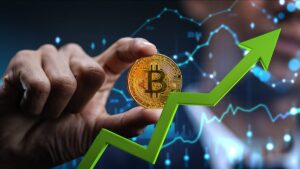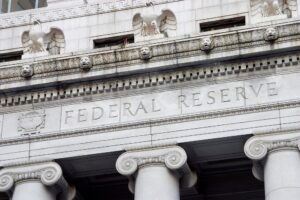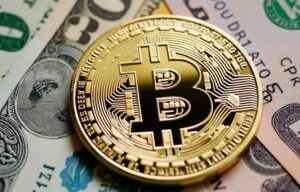Bitcoin se verá afectado por la nueva fase de la guerra en Medio Oriente
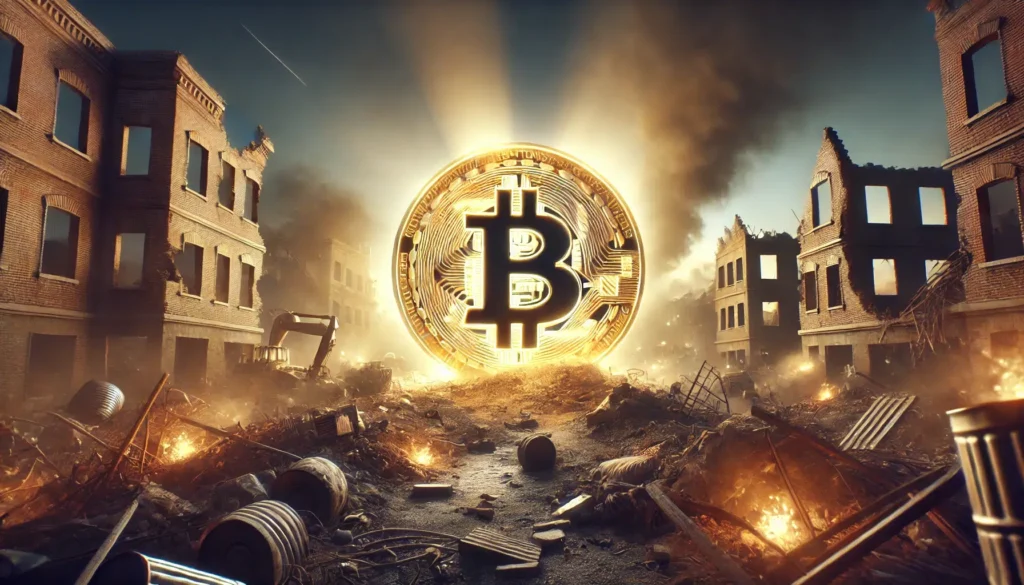
-
Bitcoin price has reacted calmly to the new Israeli attack on Gaza.
-
Israel sees the end of the war approaching, while Iran sees the beginning of a new war phase.
The financial markets, including bitcoin (BTC), have started the day on a positive note, following the new geopolitical situation in the Middle East that is changing the playing field.
Israel announced yesterday afternoon the death of Hamas leader Yahya Sinwar in an attack by its troops in the city of Rafah, in southern Gaza. With this situation, Israeli leaders see a possible end to the war if they release their compatriot hostages.
“Sinwar’s elimination opens the possibility of the immediate release of the hostages and paves the way for a change that will lead to a new reality in Gaza, without Hamas and without Iranian control,” said Israeli Foreign Minister Israel Katz.
“Hamas will no longer rule Gaza. This is the beginning of the day after Hamas,” exclaimed Israeli Prime Minister Benjamin Netanyahu. “The return of the hostages is an opportunity to achieve all our goals and something that brings us closer to the end of the war,” he emphasized.
However, Khalil al-Hayya, a senior Hamas political figure, declared today that they will not release the Israeli hostages until Israel withdraws from Gaza. Furthermore, Hezbollah, the Lebanese political-paramilitary group allied with Hamas, said they are entering a new phase in their struggle. Thus, the conflict still seems far from reaching a resolution.
Despite these geopolitical tensions, the price of bitcoin surpassed $68,500 today, reaching highs not seen in almost three months, precisely since July.
With this movement, bitcoin strengthened the upward trend it has been showing for over two months, as shown in the following chart. This leaves it 6% away from the all-time price high it reached in March.
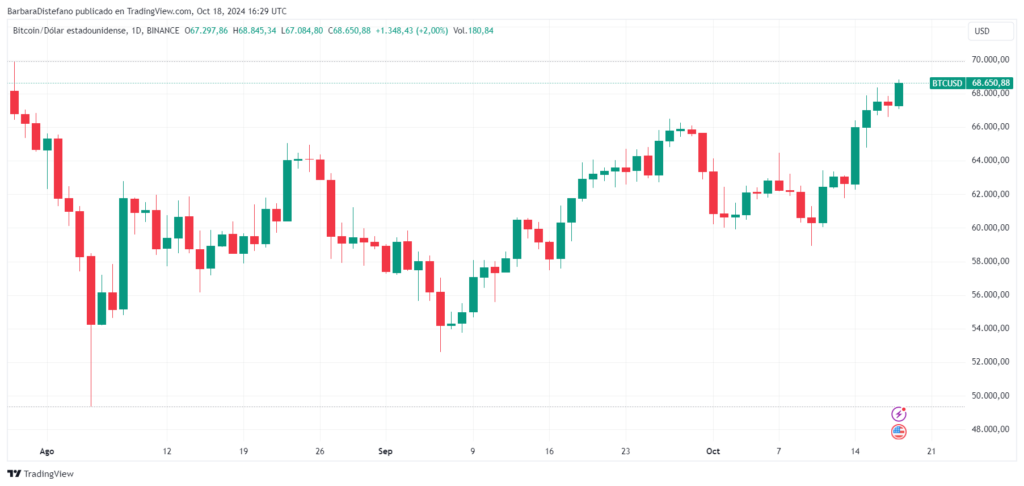
Additionally, the S&P 500 (SPX), an index that gathers the stocks of the top 500 companies traded in the United States, opened today on a positive note. This allowed it to reach new all-time high prices, following the upward trend driven by the start of interest rate cuts.
With this behavior, financial markets seem to have welcomed the possibility of an end to the war in the Middle East with optimism, beyond the response of Hamas supporters.
Since a war has implications on the global economy, investors tend to stay away from assets that could pose a risk. Indeed, this was reflected in the escalation of conflict in the Middle East in early October, which momentarily affected the markets.
Therefore, when the end of a war begins to be glimpsed, markets tend to react positively based on expectations of greater geopolitical and economic stability. In this sense, the evolution of the conflict in the Middle East is a factor that can continue to impact the prices of financial assets, such as bitcoin.
Bitcoin emits mixed views from investors
Something to keep in mind in this regard is that bitcoin emits mixed views from investors. While some see it as a risky asset due to its high volatility, others label it as “digital gold.” This latter has to do with the fact that, like gold, it has a scarce supply and decentralized mining without depending on a specific economy.
Historically, the price of gold has risen in periods of geopolitical and macroeconomic uncertainty, making it a store of value. According to analysts at investment bank JP Morgan, bitcoin can also play this role in the market.
Therefore, even though bitcoin could benefit from the end of geopolitical conflicts, it can also come out ahead in an opposite scenario only if its narrative as “digital gold” gains strength.
The price of gold reached a new record today, like the SPX, indicating investors’ attempt to seek refuge amid an uncertain future. However, in the case of more certainty about the end of the war in the Middle East and macroeconomic improvements, demand for gold could decrease and risk could increase.
With this in mind, for the continuity of prices, it is crucial to observe how investors react to global developments.
